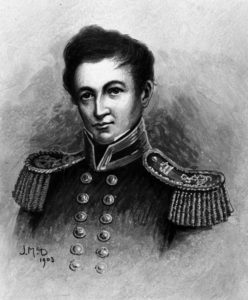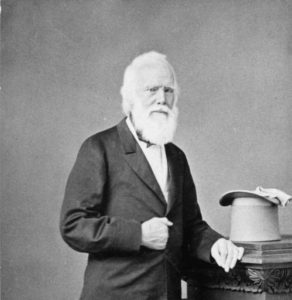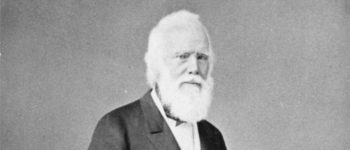1840: “Britain did not want sovereignty over Māori”
February 15, 2021
By AHNZ
 Prof. Moon is right to say that Britain did not want sovereignty over Maori. Garrick Tremain is right to satarise the notion that Britain agreed to put their Crown into a position of perpetual (infantalising) compensation too. The Anarchist historian will go one step further. Britain indeed did not want sovereignty over Maoris in New Zealand. But, did it want power and control and revenue rights over its own people in New Zealand? You bet!
Prof. Moon is right to say that Britain did not want sovereignty over Maori. Garrick Tremain is right to satarise the notion that Britain agreed to put their Crown into a position of perpetual (infantalising) compensation too. The Anarchist historian will go one step further. Britain indeed did not want sovereignty over Maoris in New Zealand. But, did it want power and control and revenue rights over its own people in New Zealand? You bet!
“..explicit in the Colonial Office’s policy for the Treaty, was that the chiefs were only being asked to surrender their sovereign powers over settlers living in New Zealand.”- Britain did not want sovereignty over Māori, Paul Moon; Stuff
New Zealand, by 1840, had become an exciting, Anarchistic, mixture of settlements. These places, and their personnel, were largely viewed as tribal assets by the natives. Sealers, whalers, Frenchies, Missionaries, loggers, flaxers, traders, farmers, warriors, shippers, armorers. An independent archepellego nation was spontaneously forming down here in New Zealand. Maoris took little convincing that this was Maoriland, these white people and the accessories that came with them were Maori chattels.
“Initially these different body parts of the New Zealand butterfly (Lepidoptera Zealandia) each had their own culture and accents and self-direction. They did not remain the body parts that had been severed from Lepidoptera Britainia and shipped off separately. Each part had the inner resources to organise itself as its own whole organism so that around New Zealand sprang up a patchwork of new subspecies. Each had their own churches, own midwives, own newspapers, own leaders, own songs, own libraries, own accents and jargon, own industries, own militia, own landscape, own hospitals, own community halls, own parks, own religions, own specialities, own schools, own holidays, own parades, own values.”- Lepidoptera Zealandia
“George Angas, founding statesman at South Australia colony heard what the French were up to across the ditch in New Zealand. He quickly set wheels in motion leading to Captain William Hobson’s visit and eventual take-over of New Zealand for the British.”- Akaroa
“There were thousands of non-Maori legally coming and going from New Zealand prior to 1840. Very soon after Captain Cook’s (re)discovery, this country became a destination for numerous visitors and of course it was covered by governing laws.” – 1800s: New Zealand Not Quiet, AHNZ
“Māori sovereignty was to remain intact. Britain had no intention to seize Māori sovereignty, not because of some sentimental altruism, but purely for pragmatic reasons. It would be difficult and costly enough to try to govern the 2000 settlers in the country in 1840. It would be impossible, given the resources available and the low priority New Zealand presented, for Britain to rule over the country’s indigenous population of roughly 100,000.” – Britain did not want sovereignty over Māori, Paul Moon (2021); Stuff
“New Zealand…was first mentioned in statute. The occasion was, for one thing, to make it quite clear that New Zealand was not part of British territory.” – 1817: The Murders Abroad Act, AHNZ
It was Minister of Native Affairs James FitzGerald who gave Maoris full status as citizens in 1865 of the colony with the “…same rights and privileges as British subjects and protection of British law. That is, he legislated for Article 3 of The Treaty of Waitangi; “The best thing we did,” according to Fitz.” – 1865: Fitz Dreams of Peace, AHNZ
 Rather than be happy for their new Free Market neighbour, the likes of South Australia blew the whistle. So unfair, them being on a tax plantation and having customs restrictions when New Zealanders had free ports and no tax! For William Hobson and his gang, New Zealand was an opportunity to be Boss of something, just like their mentor Lord Auckland in India.
Rather than be happy for their new Free Market neighbour, the likes of South Australia blew the whistle. So unfair, them being on a tax plantation and having customs restrictions when New Zealanders had free ports and no tax! For William Hobson and his gang, New Zealand was an opportunity to be Boss of something, just like their mentor Lord Auckland in India.
Hobson wanted to annex the Settlers, not the Maoris, and needed some legal pretense if he wasn’t to resort to naked armed conquest. He would be William the Diplomat, not William the Conqueror. So, Hobson went through the Maoris to get to the Europeans.
By legally recognising that Maoris were Boss in New Zealand (not a hard sell for the natives at all, who already thought so) Hobson legitimised an authority over all the settlers. All they’d done, he argued, was buy some land from a Boss and that didn’t come pre-installed wtih sovereignty. This, Hobson said, was the Maori’s, and, he said in the same breath, I’ll be having that thanks: Sign here.
“AH! Those good old times, when first I came to New Zealand, we shall never see their like again…before Governors were invented, and law, and justice, and all that. When everyone did as he liked- except when his neighbours would not let him…no taxes, or duties, or public works, or public to require them..Money was useless and might go a begging.”- Old New Zealand (1863); Frederick Maning
“The new settlers, on landing, organized themselves into a government, and claimed to exercise all rights of sovereignty on the ground that, with the land, the Maoris had also transferred to them their functions of chieftainship within the alienated district.”- Clarke (1903)
That’s why we have the Treaty. The Maoris were used to get at the Settlers. They were imagined to have a power Hobson wanted, a power he transferred to himself. Thus, the Cook Straight Settlers who set up their own government in what had hitherto been unclaimed territory were able to be shut down as “treasonous” by the Hobson Gang even though The Gang didn’t even show up in NZ until after the Settlers.
Paul Moon and lots of good people see many of these puzzle pieces but they can’t quite put it together. Statist folk keep thinking that Government is metaphyically real, or Hobson more than a mobster, so they can’t see the plain truth. Anarchist History disrupts Statist History.
Maoris were the subject of the joke that is the Treaty of Waitangi but they were never the target. Not Britain nor Governor Hobson wanted to rule the Maoris.
“Colonies were a nuisance. They only caused trouble and often involved the expense of maintaining troops to protect them. England wanted no more colonies, and would have been glad to be rid of many that she already had. The new colony in New Zealand was a plan of no government, but of a business man in the City of London.” – Curtain-raiser to a Colony, C & C Manson (1962)
Maoris did not even legally become part of the Colony of New Zealand until 1865. This is why I say Maoris are immigrants in this country just as much as they are in Australia.
Then who was the target of the Treaty? Who was Hobson trying to get? He was trying to get at the Free Settlers and set himself up as their mafia boss. No wonder New Zealand’s first taxman arrived with Hobson on Day 1. It was a corporate raid.
—
Image ref. First In Best Served, Garrick Tremain (2022)
 Like Comment Share
Like Comment Share





